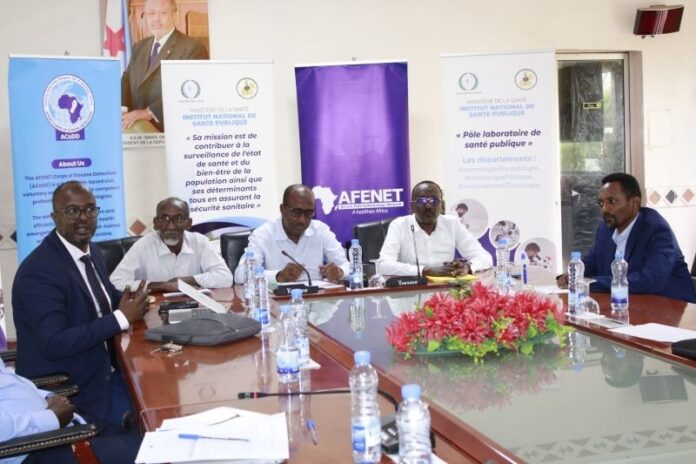The Horn of Africa has taken a pivotal step in enhancing its public health readiness through a groundbreaking regional disaster preparedness and response Training of Trainers (ToT) held in Arta Region, Djibouti, from May 5 to May 9, 2024. This five-day training program represents a collaborative effort involving the US Centers for Disease Control and Prevention (CDC), the African Field Epidemiology Network (AFENET), and Djibouti’s Ministry of Health. The initiative aims to foster a coordinated approach to managing disasters and public health emergencies across the region.
High-Profile Inauguration and Attendance
The ToT inauguration was graced by an array of dignitaries and key stakeholders. His Excellency Mohammod Ali, the Secretary General of Djibouti’s Ministry of Health, officially opened the event, signaling its significance to the country’s health policy framework. Among the notable attendees were Dr. Houssein Youssouf Darar, Director General of Djibouti’s National Institute of Health; Elmi Bouh, President of the Regional Council of Arta; and Hassan Dabaleh, Prefect of the Arta region. The event also saw participation from representatives of the US-CDC, including Dr. Bayleyegn Tesfaye and Dr. Schnall Amy, both from the National Center for Environmental Health, and Dr. Tatek Bogale, the AFENET Regional Technical Coordinator for the Horn of Africa.
Training Focus and Objectives
The training brought together 24 healthcare professionals from various AFENET member countries, including Djibouti, Ethiopia, and Somaliland/Somalia. Using the latest Disaster Epidemiology and Toxic Outbreak Investigation materials, participants underwent rigorous training designed to equip them with advanced skills for conducting rapid needs assessments and setting up effective surveillance systems. These skills are critical for effective disaster response and public health emergency management. The ultimate goal is for these trained professionals to become trainers themselves, enabling them to share their knowledge and skills within their respective countries, thereby strengthening regional resilience.
Acknowledgment of Partnerships and Collaborative Efforts
During the opening ceremony, the speakers highlighted the invaluable role of the US-CDC and AFENET in supporting the initiative. Their contributions have been instrumental in enhancing the region’s capacity to respond to public health crises. The collaboration between Djibouti’s Ministry of Health, the National Institute of Health, and other stakeholders was emphasized as key to building a robust health system in the region.
Importance of Regional Preparedness
The regional disaster preparedness and response training represents more than just a capacity-building exercise; it marks a significant stride toward creating a coordinated and robust public health infrastructure in the Horn of Africa. The ability to respond swiftly to disasters and public health emergencies can save lives and mitigate broader societal impacts. The skills and knowledge shared through this training aim to ensure that healthcare professionals across the region are better prepared to handle emergencies, thus strengthening the overall resilience of the health system.
Looking Forward
As the training concludes, the participants return to their respective countries with a wealth of knowledge and a mandate to disseminate what they have learned. The continued collaboration among regional health authorities, international partners, and local stakeholders will be crucial in maintaining and building upon the progress made during this training. The success of such initiatives not only improves immediate response capabilities but also contributes to the long-term goal of creating a more resilient and health-secure Horn of Africa.
















 The African Research (AR) Index is a comprehensive scholarly directory and database focused explicitly on journal publishers that publish and disseminate African research.
The African Research (AR) Index is a comprehensive scholarly directory and database focused explicitly on journal publishers that publish and disseminate African research.

